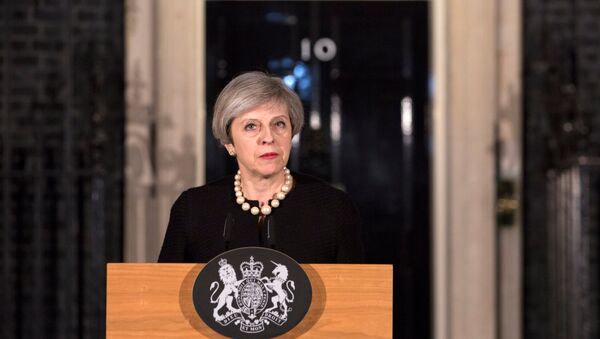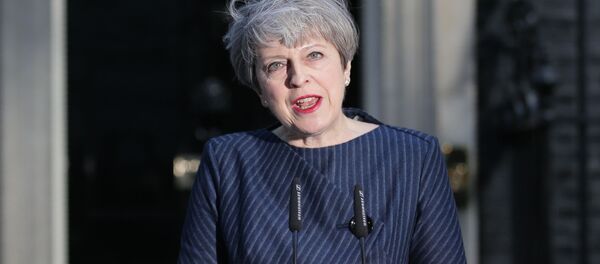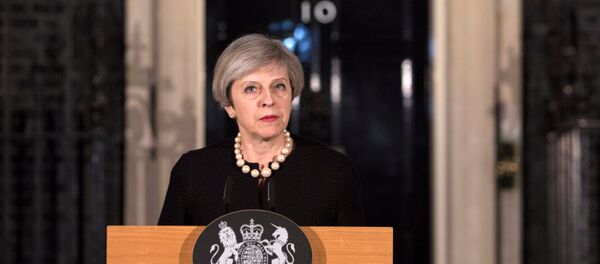May is in the unusual position of heading up a mid-term government that is way ahead in the polls. Most such governments tend to suffer from a ratings slump, midway through the session- which was scheduled to run from 2015 to 2020.
However, with Jeremy Corbyn leading the Labour opposition, which is deeply divided over his leadership, May is banking on many Labour supporters either voting for other parties or — more likely — staying away from the polling stations when voting begins, June 8.
Ostensibly, she wants to secure a personal mandate (she was elected party leader after David Cameron resigned and she has not yet faced a general election), but says she wants parliament to rally behind her as she negotiates Britain's exit from the EU and its new trading relationship with the remaining 27 EU member states.
We need an election now to secure the strong, stable leadership the country needs to see us through Brexit & beyond. https://t.co/8jhvoAcLuR
— Theresa May (@theresa_may) April 18, 2017
"I genuinely came to this decision reluctantly, having looked at the circumstances, and having looked ahead at the process of negotiation. I want this country to be able to play the strongest hand possible in those negotiations to get the best possible deal because that's in our long-term interests," she told the BBC Today program, April 19.
"That's what this is about, it's about asking the people to trust me, to trust us in government, to give us that mandate to go and get that really good deal for the UK," she said.
Working Majority
However, being Theresa May, there is more to this than meets the eye. Her government holds a working majority of just 17, which — while giving her the ability to pass legislation — leaves her open to troublemakers on her own back benches who have been able to scupper legislation when they want to.
A case in point was the "omNICshambles" budget, when the Chancellor, Philip Hammond, was forced to U-turn over a rise in National Insurance contributions by the self-employed. The move had been agreed by May and her cabinet, but was met with massive opposition from within her own party when announced.
May should announce that she will reappoint her top three ministers and her Brexit team post-election https://t.co/HcjWvQ1MbS
— ConservativeHome (@ConHome) April 19, 2017
Party Dissent
Moreover, May is also keen to quash dissent within her own party, which has been divided over EU membership since the day Britain joined the common market in 1973. Cameron had called the In-Out referendum on Britain's membership of the EU because of deep divisions within the Conservative Party and the rise of support for anti-EU party UKIP.
His intention was to gain a once-and-for-all answer from the British public in an attempt to put an end to decades of unrest within his party, intending to win a "remain" result, which he failed to do. Thus, May is attempting to do this a second time: gain a strong mandate for her version of Brexit, stifling calls for soft Brexit (effectively half staying in the EU), which some members of her party want.
She is also trying to see off pressure from both the pro-EU Liberal Democrats and the Scottish National Party, both of which want to see a soft Brexit. If May — who is riding high in pre-election polling — can win a substantial vote at the upcoming election, she is hoping to silence her critics and make her case in Brussels. The last time a British Prime Minister gambled with the public (at the June 23, 2016 referendum) he lost and resigned. May knows that the polls show her well ahead, but her snap election call may backfire, if she fails to win a higher working majority after the polls close.






